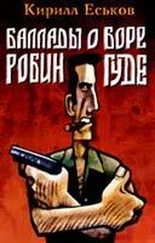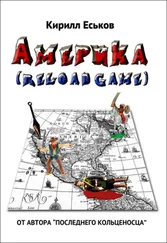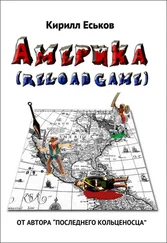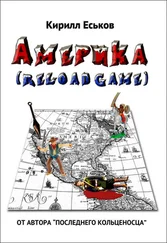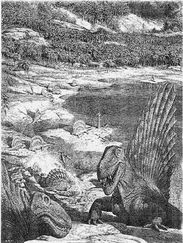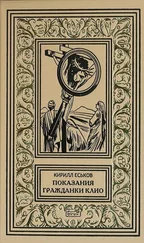Кирилл Еськов - The Last Ringbearer
Здесь есть возможность читать онлайн «Кирилл Еськов - The Last Ringbearer» весь текст электронной книги совершенно бесплатно (целиком полную версию без сокращений). В некоторых случаях можно слушать аудио, скачать через торрент в формате fb2 и присутствует краткое содержание. Жанр: Фэнтези, на английском языке. Описание произведения, (предисловие) а так же отзывы посетителей доступны на портале библиотеки ЛибКат.
- Название:The Last Ringbearer
- Автор:
- Жанр:
- Год:неизвестен
- ISBN:нет данных
- Рейтинг книги:4 / 5. Голосов: 1
-
Избранное:Добавить в избранное
- Отзывы:
-
Ваша оценка:
- 80
- 1
- 2
- 3
- 4
- 5
The Last Ringbearer: краткое содержание, описание и аннотация
Предлагаем к чтению аннотацию, описание, краткое содержание или предисловие (зависит от того, что написал сам автор книги «The Last Ringbearer»). Если вы не нашли необходимую информацию о книге — напишите в комментариях, мы постараемся отыскать её.
© 2010 Yisroel Markov (English translation),
For non-commercial distribution only
The Last Ringbearer — читать онлайн бесплатно полную книгу (весь текст) целиком
Ниже представлен текст книги, разбитый по страницам. Система сохранения места последней прочитанной страницы, позволяет с удобством читать онлайн бесплатно книгу «The Last Ringbearer», без необходимости каждый раз заново искать на чём Вы остановились. Поставьте закладку, и сможете в любой момент перейти на страницу, на которой закончили чтение.
Интервал:
Закладка:
“I don’t understand, Field Medic, sir…” it seemed that the sergeant’s lips, gray with blood loss, had trouble obeying him. “What does ‘if it can be called victory’ mean?”
Don’t you dare, Haladdin told himself. That had been my decision; I have no right to burden anyone else with it, not even Tzerlag, not even a tiny bit. He should not even suspect what he had just witnessed and indirectly caused, for his own good. Let all this remain our Dagor-Dagorlad to him – a victorious Dagor-Dagorlad… “What I mean is… The thing is, not a soul in Middle Earth will believe in our victory. No victory parades, you know? Mark my words: the Elves and the Men from beyond the Anduin will find a way to paint themselves as the victors, anyway.”
The Orocuen nodded and held still for a moment, as if listening to the slowly subsiding growl of the Fire Mountain. “Yeah. That’s how it’s gonna be, no doubt. But what do we care?”
Epilogue
“What will History say?”
“History, sir, will lie – as always.”
Bernard ShowHave the courage to dream and lie.
Friedrich NietzscheOur narrative is based entirely on Tzerlag’s tales, however incomplete, that are preserved by his clan as an oral tradition. It should be stressed that we have no documents that might attest to its veracity. The one who might have been expected to leave the most detailed account – Haladdin – had not recorded even a word on the subject; the other participants in the hunt for Galadriel’s Mirror – Tangorn and Kumai – remained silent for obvious reasons. Therefore, whoever would like to declare the whole thing to be the old-age ravings of an Orc who wanted to replay the finale of the War of the Ring is free to do so with clear conscience. After all, that’s what memoirs are for: to let veterans recast their losses as victories after the fact.
On the other hand, those who consider this story to be, if not a true, then at least a plausible version of history, might be interested in certain events outside its immediate time frame. Tzerlag related that he had accompanied Haladdin from Orodruin to Ithilien; the doctor seemed very ill and didn’t say ten words in a row throughout the journey. On one of their stops the sergeant fell in a sleep so deep that he woke up only by next evening, nauseous and with a monster headache. Instead of his comrade he found the mithril coat by his side, with a farewell letter wrapped in it. Haladdin wrote that Middle Earth was now free from the Elvish menace and that in his capacity as the commanding officer of the operation he thanked the sergeant for excellent service and awarded him the precious armor. As for the doctor himself, regretfully he ‘had paid such a price for victory as to see no place for himself among people.’ Those words led the scout to fear the worst, but the hunch did not pan out: judging by his tracks, Haladdin had simply reached the Ithilien highway and took it to points south.
Interestingly, a few years ago a certain light-minded doctoral student at the Umbar University’s Medieval History Department took this legend at face value and invested the effort to comb the account books of several Eastern monasteries, which have been keeping records for the last fifteen hundred years with an unnatural thoroughness. What do you think – the whelp did unearth a very curious coincidence: in January 3020 (by the then current calendar) an Umbarian-looking monk did join the Gurwan Aren cave monastery in the mountains of North Vendotenia. This monk took an oath of silence and donated an inoceramium ring to the monastery. This led the student to make (quoting the minutes of the departmental meeting) “a hasty, unfounded, and totally non-scientific claim of identity of the said monk with the legendary Haladdin.” Naturally, the doctoral committee administered a proper tongue-lashing to the wannabe ghost-hunter, so that the young man forswore departures from his approved dissertation topic and has been dutifully dusting clay fragments from the garbage piles of Khand’s Seventh Dynasty ever since.
As for the real Haladdin, his name can be found in any university course on history of science – as an example of the dangers of sudden leaps forward – rather than physiology, his life’s work. His brilliant studies of nerve tissue function have been so far ahead of his time as to fall out of scientific context and be forgotten. Only three centuries later did the medics of the Ithilien School come across his works while searching for ancient antidotes. It became clear then that Haladdin had beaten the famous Vespuno by more than a hundred years; not only did he prove experimentally the electric nature of axon stimulation, but he also predicted the existence of neurotransmitters, and even modeled how they should work. Unfortunately, only historians are interested in the ‘who was there first’ kind of things; the scientific community has no use for this information. In any event Haladdin’s last known work is dated year 3016 of the Third Age and the official version is that he perished during the War of the Ring.
Let’s go back to Tzerlag, whose historicity is beyond doubt. As is known, the occupation of Mordor ended (suddenly and inexplicably) by the winter of 3020, and life there started slowly getting back to normal. The population of the cities had suffered tremendous losses (strictly speaking, the Mordorian civilization had not fully recovered since then), but the nomads have mostly avoided those tribulations. The sergeant used to say that a real man whose hands grow from the right place (rather than out of his butt) will come out on top whatever the situation, and proved this maxim with his entire life. After returning to his home grounds, he ended up the founder of a large and powerful clan, which had preserved the tale of his journeys in its oral tradition, as is customary with nomadic peoples.
Incidentally, the fate of the other sergeant, Runcorn, was almost the same as Tzerlag’s, aside from the fact that the ex-ranger lived on the other side of the Mountains of Shadow in the valley of the Otter Creek, rather than on the Morgai plateau. The hamlet he built under a strange name Lianica had grown into a regular village in only five years. When his little son found the first gold nugget in Ithilien in the creek’s gravel bed, the neighbors only shrugged: money always attracts money. Had he and the Orocuen met in their old age, undoubtedly they would have put their Mirkwood debates about the comparative advantages of dark beer and kumiss to a practical test, but it was not to be.
Tzerlag had decided to return the mithril coat to Haladdin’s girl together with the tale of his vanished friend’s heroic achievement. But Kumai had perished, and the scout himself knew nothing of the girl beside the name Sonya (very common among Trolls) and vague knowledge of her participation in the Resistance, so all his efforts to locate her failed. The despairing Orocuen then decided that he and his clan were the keepers rather than the owners of the artifact (the nomads’ punctiliousness in those matters is truly without limit). The sergeant’s great-great-grandson ended up turning it over (together with the associated headaches) to the Núrnen History Museum, where anyone can see it today together with the other relics of the mysterious Mordorian civilization. At this point the apologist for the legend might say: “Aha! Isn’t the coat of mail proof enough for you?” The grave and absolutely correct answer would be that the coat proves nothing even within Tzerlag’s narrative, since Haladdin had obtained it before receiving the nazgúl’s ring.
By the way, concerning mithril … There is a total of four such coats of mail in the museums of Arda, but the technology of their manufacture remains a mystery. If you want your metallurgist friend to throw something heavy at your head, ask him about this alloy. It’s been analyzed to death: 86% silver, 12% nickel, plus trace amounts of nine rare metals from vanadium to niobium; they can measure these proportions to the ninth digit after the decimal, X-ray its structure, and do a myriad other things, except reproduce it. Some say (not without a trace of mockery) that the old masters would supposedly forever invest a fraction of their souls in each batch of mithril , and since today there are no souls, but only the ‘objective reality perceived by our senses,’ by definition we have no chance to obtain real mithril .
Читать дальшеИнтервал:
Закладка:
Похожие книги на «The Last Ringbearer»
Представляем Вашему вниманию похожие книги на «The Last Ringbearer» списком для выбора. Мы отобрали схожую по названию и смыслу литературу в надежде предоставить читателям больше вариантов отыскать новые, интересные, ещё непрочитанные произведения.
Обсуждение, отзывы о книге «The Last Ringbearer» и просто собственные мнения читателей. Оставьте ваши комментарии, напишите, что Вы думаете о произведении, его смысле или главных героях. Укажите что конкретно понравилось, а что нет, и почему Вы так считаете.

